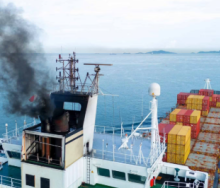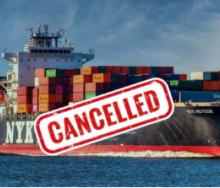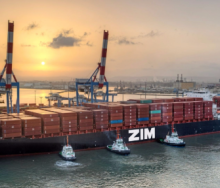Hamburg container line Hapag-Lloyd is gearing up to convert five 10 100-TEU vessels to run on methanol, marking a major step forward to cut emissions and decarbonise the line’s fleet.
The carrier said in a statement that the project had started with a successful test run of a MAN S90 engine retrofitted for methanol use, carried out in Japan by MAN Energy Solutions and Hitachi Zosen Marine Engine.
The test proved that the engine – originally built to run on traditional fuel oil – could switch over to methanol without a hitch.
Hapag-Lloyd has more than 50 vessels in its fleet powered by these engines, meaning the breakthrough opens a door to a whole new world of greener possibilities for the shipping line.
“Methanol is shaping up to be one of the most promising alternative fuels…When produced sustainably, it slashes carbon emissions significantly compared to traditional fuels,” Hapag-Lloyd said.
Each of the five retrofitted vessels could cut CO₂ emissions by 30 000 to 50 000 metric tonnes every year, the equivalent of taking thousands of cars off the road annually.
Hapag-Lloyd Chief Operating Officer (COO), Maximilian Rothkopf, said the line planned to decarbonise its entire fleet.
"Our methanol retrofit project is another step on our journey to decarbonise our entire fleet by 2045.
“By making these ships methanol-ready by 2026, we’re not only shrinking our carbon footprint, we’re also meeting the growing demand for greener transport solutions from our customers.”
He said the line had teamed up with Seaspan Corporation, a long-time partner, to bring the ambitious project to life.
Seaspan COO, Torsten Holst Pedersen, said the collaboration was driving innovation. “Retrofitting must be an integral part of the strategy if the container shipping industry wants to deliver on its decarbonisation targets.”













